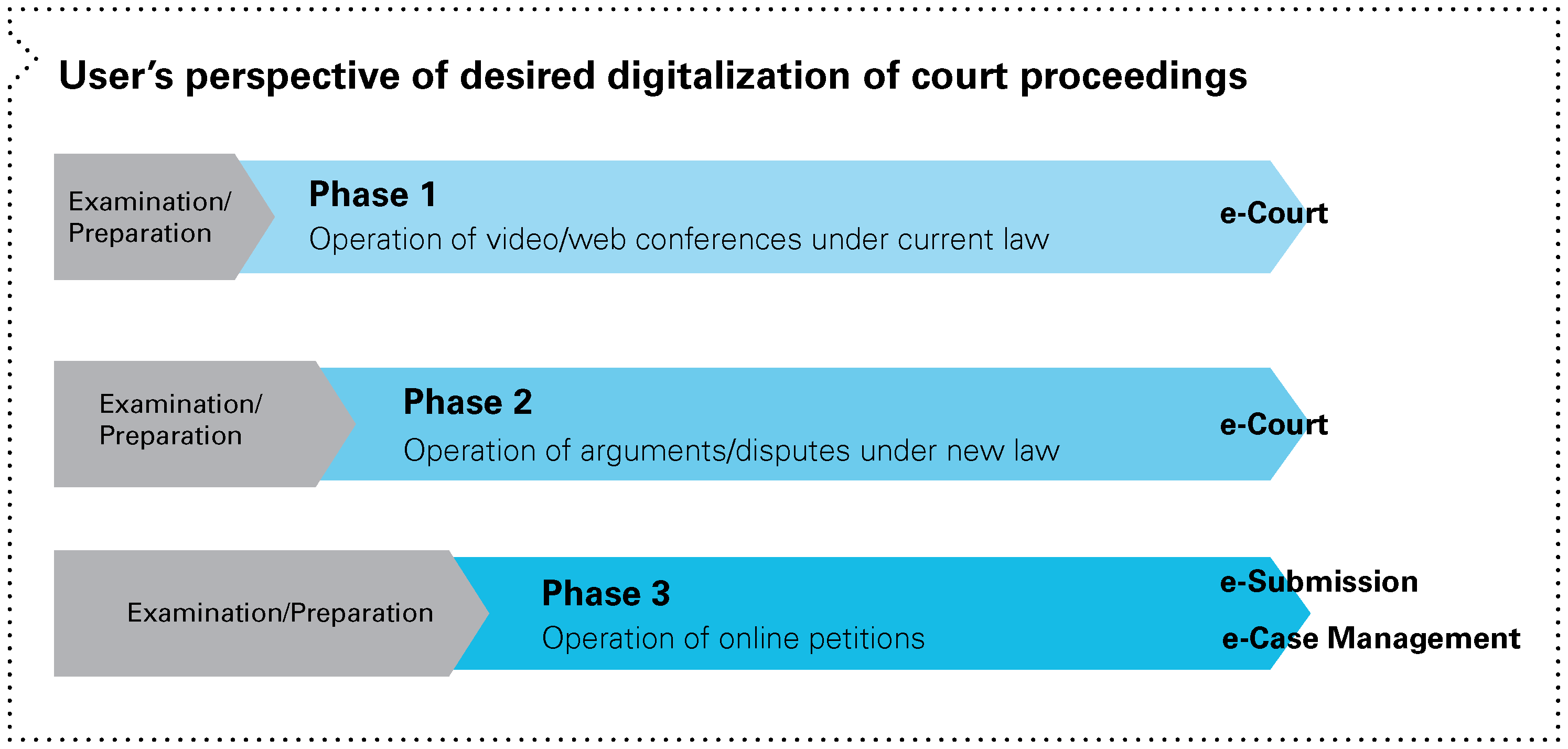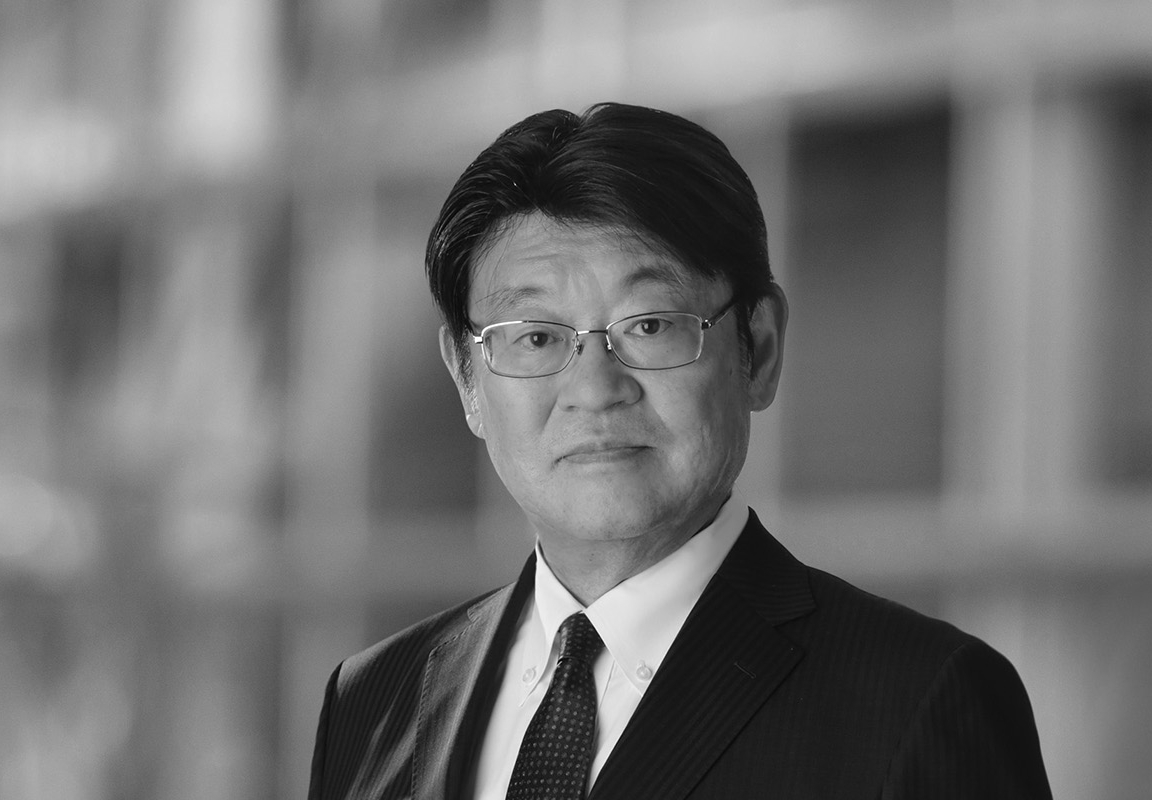
Amendments to Japan's Civil Procedure Rules: Towards Full Digitalization of Court Proceedings
4 min read
On May 25, 2022, the Amended Code of Civil Procedure ("CCP")1 was enacted in Japan.2 It will introduce significant systemic changes to achieve full implementation of digitalized civil court procedures in Japan, which has been pointed out as being outdated in recent years. The amended CCP will come into force in stages, during the period from the date of promulgation to a date specified by a Cabinet Order, within a period not exceeding four years.
The official discussions on the digitalization of civil litigation procedures moved into high gear when the government's "Strategy for Future Investments, 2017"3 identified the "digitalization of court procedures" as an issue to be considered.4 Specifically, the working group suggested that it would be appropriate to proceed from the perspective of realizing (1) e-Filing, (2) e-Court and (3) e-Case Management (the "3 e"), and then sequentially launch new operations in three phases.5
User's perspective of desired digitalization of court proceedings6
It was possible to adopt some of the procedures digitally even under the current civil procedures, such as the active use of existing video/web conferencing systems (Phase 1, above). However, it was necessary to amend the CCP in order to proceed with a full-scale digitization of civil court procedures. In particular, discussions were held to realize speedy and efficient court procedures, while ensuring not to infringe the right of access to the court (which is considered to be an issue in court proceedings undertaken without legal representation), and various principles, such as the principle for publicity of court proceedings (Article 82 of the Constitution of Japan)7, the principle that pleadings and examination of evidence must be conducted orally, and that only what is orally stated is the basis for a judgement (i.e., principle for oral argument) and the principle of directness (Article 249 of the CCP).8
As detailed below, various changes to digitalization will be implemented over the next four years.
1. Summary of Amendments
1.1 e-Submission
- e-Filing: Filing of an action and submission of briefs, etc. will be possible using the Internet (Article 132-10 of CCP).
- e-Service: If the service recipient consents in advance, service can take place via the provided e-mail address or alike. The above shall take effect upon (i) viewing, (ii) downloading, or (iii) passage of one week from the date of notice dispatched (Article 109-2 and 109-3 of CCP). If (i) or (ii) cannot be fulfilled due to reasons not attributable to the recipient, the time frame will not be considered in that of (iii) (Article 109-3 of CCP).
- Obligation of Attorneys: The use of the Internet for civil court proceedings is optional. This is because many are concerned that mandatory online procedures might pose difficulties for certain groups to access judicial services, especially for those who are not experienced in digital technology. It is important to note that lawyers are obliged to use the e-submission systems (Article 132-11 of CCP).
1.2 e-Court
- Preparatory Proceedings: Prior to the amendments, it was mandatory for one party to appear in court for preparatory proceedings, if the other was participating via teleconference. Now, both parties will be able to join the proceedings simultaneously through teleconference (Article 179, Paragraph 3 of CCP).
- Oral Arguments: Additionally, a new system was established in which one or both parties can be involved in the oral argument proceedings by using web conference systems (Article 87-2 of CCP).
- Settlement: Teleconference systems can now also be used to conduct proceedings on the settlement date (Article 89, Paragraph 2 of CCP).
- Implementation Method: In the near future, the specific method of using teleconference systems will be further stipulated in the court rules. During the process of amending the CPP, it was agreed upon that the ‘publicity of court proceedings' is satisfied if a web conference system displays the party in question on the court monitor, and clear communication is maintained via video and audio.9
1.3 e-Case Management
- Records and their Access: Electronic documents submitted to the court will be recorded on the court servers, per the new amendments (Articles 132-12 and 132-13 of CCP). Consequently, these publications will be accessible to anyone using the server (Article 91-2 of CCP).
2. Date of Enforcement
In principle, the new law will come into effect on a date specified by the Cabinet Order. This period cannot exceed four years from the date of enactment (Article 1, Supplementary Provisions). The enforcement thereof will occur in stages. For instance, the following changes are being stipulated at an earlier stage:
- Preparatory proceedings by means of teleconference by both parties: to be enforced within one year after enactment (Article 1, Item 3 of the Supplementary Provisions).
- Implementation of a date for oral argument by one or both parties via web conference: to be effective within two years after enactment (Article 1, Item 4 of the Supplementary Provisions).
1 English translation of the CCP
2 House of Councillors Website (Japanese)
3 Future Investment Strategy 2017 (Japanese)
4 ibid p. 29
5 Summary for IT implementation of court procedures, etc. (Japanese)
6 English translation of the diagram summarizing the digitalization approach to court proceedings shown on p. 20 of the report in the above note.
7 English translation of the Constitution of Japan
8 Report of the IT Study Group on Civil Trial Procedures, etc. (Japanese) (pages 59 - 63, etc.)
9 ibid p. 60
White & Case means the international legal practice comprising White & Case LLP, a New York State registered limited liability partnership, White & Case LLP, a limited liability partnership incorporated under English law and all other affiliated partnerships, companies and entities.
This article is prepared for the general information of interested persons. It is not, and does not attempt to be, comprehensive in nature. Due to the general nature of its content, it should not be regarded as legal advice.
© 2022 White & Case LLP




